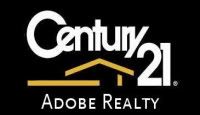Here is an old article from 2007 that is still relevant today.
By Sandra Block, USA TODAY
If you're lying awake at night, fretting about whether you'll lose your house to foreclosure, you may not be the only insomniac on your block.
More than 2.1 million Americans with home loans missed at least one payment last year, according to the Mortgage Bankers Association. Even more troubling, the rate of new foreclosures hit a record.
The problem is likely to get worse. As adjustable-rate mortgages adjust to higher rates, many borrowers are finding they can't afford their payments. And the collapse of the subprime market has made it harder for those with tarnished credit to refinance.
But be aware: Even if your mortgage has become an intolerable burden, letting the bank foreclose could lead to a lifetime of hurt. Losing your home is just the beginning. A foreclosure will wreck your credit report for years, making it impossible — or at least extremely expensive — to buy another home, says David Jones, president of the Association of Independent Consumer Credit Counseling Agencies. If the proceeds from the sale of your home don't cover your loan, your lender might sue you to recover the unpaid balance.
Many borrowers who lose their homes to foreclosure haven't tried to negotiate with their lenders. That's unfortunate, because lenders are usually willing to work with borrowers to avoid foreclosure, says John Lamb, co-author of Solve Your Money Troubles. "With the number of foreclosures on the horizon, lenders are going to be more willing to work with people, because it doesn't do anybody good to have a glut of foreclosed houses on the market."
Ideally, you should call your lender before you miss your first payment, says Bob Walters, chief economist for Quicken Loans. If your payment is due on the first of the month, call before the 15th, which he says is usually when your lender will report the late payment to credit-reporting agencies. The longer you wait, the fewer options you'll have. Once your loan is declared in default, typically after you've missed three or four payments, you're "past the point of no return," Walters says. At that point, most lenders won't accept a partial payment of what you owe. Unless you can come up with the money to cover all your missed payments, plus any late fees, your lender will start foreclosure.
Avoiding default
If you're suffering a temporary financial setback, your lender may offer programs that will help you get back on track. They include:
• Forbearance. This is an agreement that lets borrowers make a reduced payment, or none, for a specific period. You might have to make larger payments once the crisis has passed. To qualify, you might need to show that you're expecting a bonus, a tax refund or other income that will let you catch up.
• Reinstatement. You agree to pay the full amount of your missed payments by a specific date. Reinstatement is sometimes combined with forbearance.
• Modification. Your lender agrees to change the terms of the loan to make payments more affordable. Your lender may agree to add missed payments to your loan balance or extend the term of your loan, reducing the size of your payments.
Before asking for forbearance or loan modification, be prepared to show that you are making a good-faith effort to pay your mortgage, says Jim Svinth, chief economist for LendingTree.com, a website that helps consumers shop for mortgages. If you can demonstrate that you've reduced other expenses, the lender will be more inclined to negotiate, he says.
Svinth warns, though, that your ability to negotiate will also depend on which institution owns your loan. If your bank still has your loan in its portfolio, it can modify the terms or offer forbearance. But many lenders sell loans into the secondary market, where they're repackaged as mortgage-backed securities. In that case, Svinth says, the company that's servicing your loan might be unable to change the terms.
Read the rest of the article here.
Contact Century 21 Adobe Realty if you have questions or want help with foreclosure. (818)338-1117
Saturday, August 7, 2010
Subscribe to:
Post Comments (Atom)




0 comments:
Post a Comment